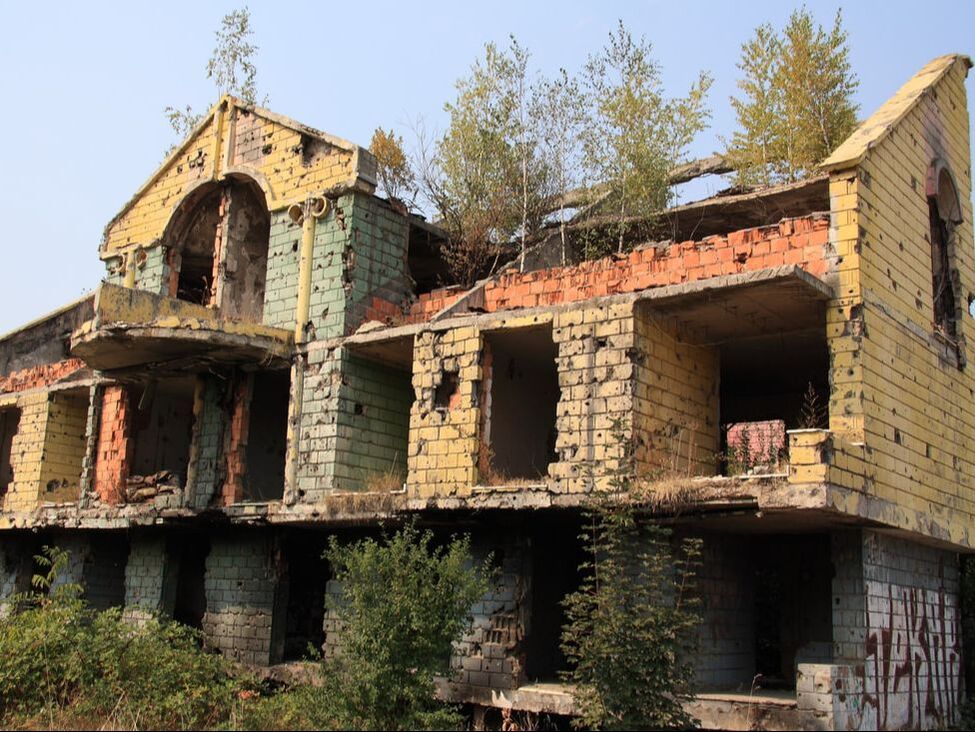|
|
|
A key scene in Danis Tanović’s Academy Award-winning film No Man’s Land (2001) features two soldiers, a Bosnian Muslim (a Bosniak) and a Bosnian Serb, who have gotten stuck in a trench during the 1990s Bosnian War. In their joint effort to escape from this unfortunate situation, they draw closer; they talk about their prewar lives and recognise that they have many things in common, even some common acquaintances. However, it comes as no surprise when, in the firestorm of bombshells, the question arises of who is responsible for the destruction of Yugoslavia, of their lives as they were before the murder and devastation. The two soldiers start to swap accusations until the armed Bosniak points his weapon at his opponent and asks one last time: ‘Who started the war?’
Around the world, conflicting parties engage in self-exculpation and self-victimisation – from Bosnia-Herzegovina to Sri Lanka, from Northern Ireland to South Africa, not to mention the Middle East. Denying one’s own responsibility and guilt and the fight over one’s own victim status seems to be a constitutive part of many conflicts and postwar situations. As socio-psychological and sociological research show, self-victimisation is accompanied by several advantages. It not only contributes to a stabilisation of group boundaries by fostering internal cohesion and outward demarcation, but also promotes feelings of moral superiority. Hence, self-victimisation is politically beneficial and a suitable tool for protecting one’s own we-ideal and with it one’s own I-ideal in the context of collective violence. It is the chosen mean to restore those facets of identity, which have potentially been corrupted or injured by the collective violence. But what happens when people are confronted with conflicting perspectives of reality, with perspectives according to which the respective ethnic in-group is not to be considered only as victim of war but also – or even exclusively – as perpetrator?
Drawing on a reconstructive analysis of in-depth interviews conducted in different regions of postwar Bosnia-Herzegovina, I identify several strategies which enable people to cling to their self-image as victims, without having the desire (or the opportunity?) to point a weapon at the opponent. My Identities article, 'Identity, ethnic boundaries, and collective victimhood: analysing strategies of self-victimisation in postwar Bosnia-Herzegovina', addresses how these strategies affect the symbolic boundaries between ethnic groups and with it the perception of we-ness. I argue that these strategies can be categorised into dissociative strategies, which conspicuously reproduce the dichotomy of victim and perpetrator along ethnic lines, and associative strategies, which seem to transcend this dichotomy. On closer examination, however, it becomes apparent that these seemingly associative strategies; for instance, the externalisation of guilt on outside third parties (like the international community) or the silencing of the war-torn past in interethnic encounters, do not necessarily contribute to an erosion of ethnic boundaries in postwar Bosnia. I suggest that, ultimately, they even reinforce ethnic boundaries. By avoiding conflicts with members of the ethnic out-group, one’s own narratives about the in-group’s moral and civilisational superiority is sheltered from external reappraisal. As a result, the in-group’s particular perspective on reality, and with it the ethnic boundary, is further consolidated.
Blog post by Ana Mijić, University of Vienna, Austria
Read the full article: Mijić, Ana. Identity, ethnic boundaries, and collective victimhood: analysing strategies of self-victimisation in postwar Bosnia-Herzegovina. Identities: Global Studies in Culture and Power. DOI: 10.1080/1070289X.2020.1748348
0 Comments
Your comment will be posted after it is approved.
Leave a Reply. |
|
Explore Identities at tandfonline.com/GIDE |
|
The views and opinions expressed on The Identities Blog are solely those of the original blog post authors, and not of the journal, Taylor & Francis Group or the University of Glasgow.

